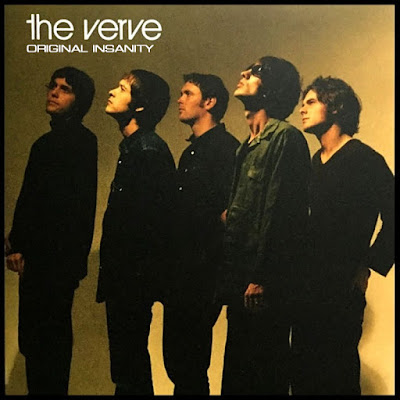Prince Rogers Nelson was born in Minneapolis, Minnesota, on June 7, 1958, the son of jazz singer Mattie Della and pianist and songwriter John Lewis Nelson, and both he and his sister Tyka developed a keen interest in music, which was encouraged by their father, writing his first song 'Funk Machine' on his father's piano when he was seven. When he was 10 his parents divorced, with his mother remarrying to Hayward Baker, with whom she had a son named Omarr. Prince had a fraught relationship with Omarr, to the extent that it caused him to repeatedly switch homes, sometimes living with his father and sometimes with his mother and stepfather. After a brief period of living with his father, who bought him his first guitar, Prince moved into the basement of his neighbours, the Anderson family, after his father kicked him out, and it was there that he befriended the Anderson's son, Andre, who later collaborated with Prince and became known as André Cymone. In 1973 Prince met songwriter and producer Jimmy Jam, and impressed him with his musical talent, early mastery of a wide range of instruments, and work ethic. In 1975, Pepe Willie, the husband of Prince's cousin Shauntel, formed the band 94 East with Marcy Ingvoldstad and Kristie Lazenberry, hiring André Cymone and Prince to record tracks. Willie wrote the songs, and Prince contributed guitar tracks, with Prince and Willie co-writing one song, 'Just Another Sucker'. The band recorded some songs which have since been re-issued as an album many times under different titles, including 'Minneapolis Genius – The Historic 1977 Recordings'.
In 1976, Prince created a demo tape with producer Chris Moon, but he was unable to secure a recording contract, so Moon brought the tape to Owen Husney, a Minneapolis businessman, who signed the 19 year-old Prince to a management contract, and helped him create a demo at Sound 80 Studios in Minneapolis, which generated interest from Warner Bros. Records, A&M Records, and Columbia Records. With the help of Husney, Prince signed a recording contract with Warner Bros, who gave him creative control for three albums, and let him retain his publishing rights. Husney and Prince then left Minneapolis and moved to Sausalito, California, where Prince's first album 'For You' was recorded and released in 1978, with Prince writing, producing, arranging, composing, and playing all 27 instruments on the recording, except for the song 'Soft and Wet', whose lyrics were co-written with Moon. In 1979, Prince created a band with André Cymone on bass, Dez Dickerson on guitar, Gayle Chapman and Doctor Fink on keyboards, and Bobby Z. on drums, and released the 'Prince' album that year, and despite the record company thinking he needed more time to develop, the album hit the top five spot on the Billboard R&B/Black Albums chart, and the single 'I Wanna Be Your Lover' sold over a million copies.
The same year he made the first of what was to become many guest appearances, although the following decade was to be particularly busy for him, and it was to be 1989 before he really started regularly guesting on other artist's albums. In 1980 he released the album 'Dirty Mind', which contained sexually explicit material, following this the next year with 'Controversy'. In 1981, Prince formed a side project band called The Time, who released four albums between 1981 and 1990, with Prince writing and performing most of the instrumentation and backing vocals, and at the same time releasing his own four-million selling album '1999', along with a string of hit singles, being the start of his world-domination over the next two decades. When he was asked to contribute to records by other musicians, it wasn't always by famous artists, and even into the 90's he was adding his guitar to tracks by Eric Leeds and Diamond And Pearl, as well as Kid Creole & The Coconuts and Mavis Staples. Similarly, in the 2000's he was guesting with Common and Rhonda Smith, as well as Stevie Wonder. In 2004 he was inducted into the Rock 'n' Roll Hall Of Fame, playing in the all-star band's version of 'While My Guitar Gently Weeps', alongside Tom Petty, Stevie Winwood, Jeff Lynne and others, and performing a stunning, un-rehearsed guitar solo at the end of the song. Other guest appearance were fairly sparse after that, with his final one before his death in 2016 being on Judith Hill's 'Back In Time' album. Although it might seem that more music has been released since his death than there was while he was alive, these guest appearance are generally over-looked as they tended not to be with the superstars that he hung out with, but lesser-known artists who would appreciate his contribution to their music.
Disc One
01 Fast Freddie The Roller Disco King (single by The Imperials 1979)
02 Got To Be Something Here (from 'The Lewis Connection' by Lewis Connection 1979)
03 Love Song (from 'Like A Prayer' by Madonna 1989)
04 The Sex Of It (from 'Private Waters In The Great Divide' by Kid Creole 1990)
05 The Dopamine Rush (from 'Times Squared' by Eric Leeds 1991)
06 51 Hours (single by Diamond And Pearl 1992)
07 Melody Cool (from 'The Voice' by Mavis Staples 1993)
08 Why Should I Love You (from 'The Red Shoes' by Kate Bush 1993)
Disc Two
01 Star *69 (PS With Love) (from 'Electric Circus' by Common 2002)
02 Purple House (from 'Power Of Soul: A Tribute To Jimi Hendrix' 2004)
03 So What The Fuss (from 'A Time 2 Love' by Stevie Wonder 2005)
04 While My Guitar Gently Weeps (from Rock 'n' Roll Hall Of Fame induction concert 2004)
05 Time (from 'RS2' by Rhonda Smith 2006)
06 Raise Up (from 'Raise Up' by Larry Graham & Graham Central Station 2012)
07 Givin' Em What They Love (from 'The Electric Lady' by Janelle Monáe 2013)
08 All Day, All Night (from 'Back In Time' by Judith Hill 2015)















